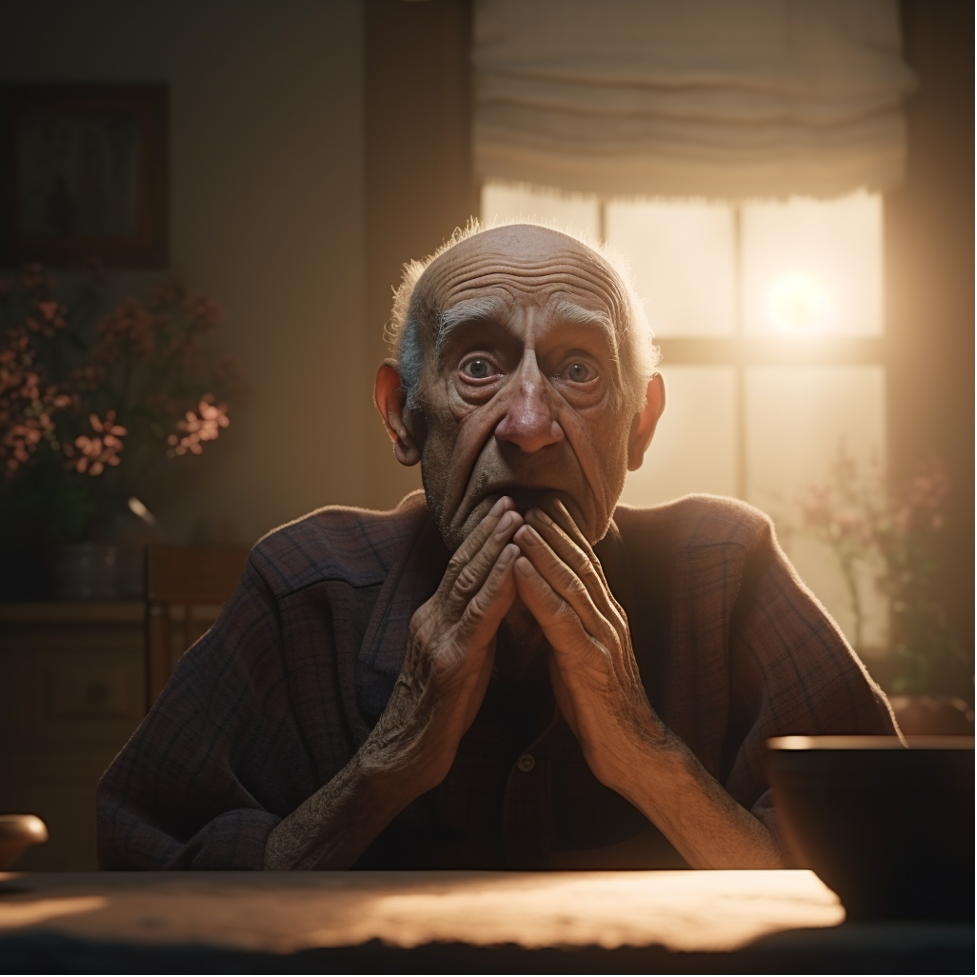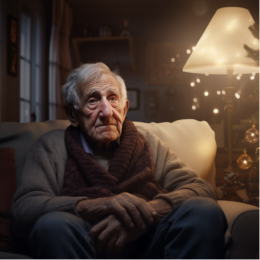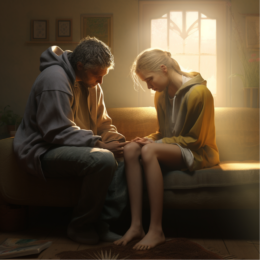What Causes Hallucinations In the Elderly?

We thought you might like these too:
- Seasonal Affective Disorder: Causes, Symptoms, and Treatments
- How Is ADHD Diagnosed In Adults?
- 6 Ways to Get Seniors With No Appetite to Eat
- 10 Ways to Help Seniors Deal With Isolation And Depression
- Understanding Schizophrenia: Signs, Causes, and Diagnosis
Ah, life’s mysteries. Is the Loch Ness Monster real? How do they fit so much air into a potato chip bag? And speaking of seeing things, what causes hallucinations in the elderly? If you’ve ever wondered or known someone who has experienced it, you’re in the right place. Let’s dive deep into this phenomenon and, in the process, share a story that may hit close to home.
What Are Hallucinations?
Hallucinations are complex perceptual experiences that occur without any external stimulus. They’re more than just a simple trick of the mind; they can encompass all five senses. Someone experiencing a hallucination might hear voices, see objects or people that aren’t present, feel non-existent touches on their skin, taste flavors without eating or drinking anything, or even smell odors without a discernible source.
What makes hallucinations particularly intriguing is their authenticity to the person experiencing them; they often feel indistinguishable from reality. These vivid and, at times, unsettling experiences can be influenced by numerous factors, including mental health, stress, sensory deprivation, or even extreme fatigue. As we further explore the topic, especially concerning the elderly, we’ll delve deeper into the triggers and consequences of these perplexing perceptual anomalies.
Symptoms of Hallucinations
While they vary widely, some common symptoms include:
- Hearing voices when no one is around.
- Seeing things or people that aren’t there.
- Feeling sensations on the skin without a clear cause.
- Experiencing tastes and smells without a source.
Remember our good friend Lucy? She had her first hallucination during a particularly taxing day and attributed it to physical symptoms of stress.
Statistics:
- Approximately 27% of older adults report experiencing hallucinations.
- The majority attribute it initially to stress or fatigue.
Quick Poll
What Causes Hallucinations In the Elderly?
Several factors come into play:
- Medications and Drug Interactions: Some drugs, when taken together, can trigger hallucinations.
- Physical Symptoms of Stress: Stress isn’t just a young person’s game. Chronic stress in seniors can lead to neurological responses, including hallucinations.
- Neurodegenerative Diseases: Conditions like Parkinson’s and Alzheimer’s can cause hallucinations.
- Vision or Hearing Loss: Sensory deficits can sometimes be compensated by the brain with hallucinations.
- Sleep Disorders: Issues like insomnia can disturb the brain’s normal function.
Lucy’s Story: Lucy, an active 75-year-old, began hearing soft melodies after her husband passed away. Initially dismissing them as physical symptoms of stress and grief, she soon realized they were auditory hallucinations. Her journey is similar to many: a mix of confusion, concern, and a desire for understanding.

Treatment of Elderly with Hallucinations
Treatment largely depends on the cause. Some approaches are:
- Medication Re-evaluation: If drugs are the cause, your physician might adjust the prescription.
- Stress Management: Meditation, therapy, and relaxation techniques can help manage physical symptoms of stress, which might reduce hallucinations.
- Treating Underlying Diseases: Addressing the root, like Parkinson’s, can help.
- Support Groups: Sharing experiences can be therapeutic.
How to Prevent Hallucinations in the Elderly?
Preventing hallucinations in the elderly is a matter of addressing both physiological and psychological aspects. The following measures can be taken to reduce the risk:
Regular Health Check-ups:
- Monitor medications and ensure no drug interactions are potentially causing hallucinations.
- Check for underlying health issues that might contribute to hallucinations, like infections or metabolic imbalances.
Balanced Diet:
- Ensure a diet rich in essential nutrients to support optimal brain function.
- Include omega-3 fatty acids and antioxidants that support neurological health.
Limit Stimulants:
- Reduce or eliminate intake of alcohol and caffeine, which can trigger or exacerbate hallucinations.
- Be cautious with over-the-counter medications that can impact sleep or brain function.
Optimal Sleep Environment:
- Maintain consistent sleep schedules.
- Create a conducive environment for sleep: dark, quiet, and comfortable.
- Address sleep disorders promptly.
Social Engagement:
- Encourage participation in community activities or group hobbies to reduce feelings of loneliness or isolation.
- Foster regular interactions with family and friends.
Cognitive Stimulation:
- Engage in puzzles, reading, or other activities that keep the brain active and sharp.
- Consider brain-training apps or games designed for seniors.
Stress Management:
- Address and reduce physical symptoms of stress.
- Incorporate relaxation techniques such as deep breathing exercises, meditation, and gentle physical exercises like tai chi or yoga.
- Offer counseling or therapy when needed.
Regular Vision and Hearing Checks:
- Ensure any sensory deficits are addressed promptly, as these can lead to compensatory hallucinations.
Stay Hydrated:
- Dehydration can sometimes lead to confusion or hallucinatory experiences. Ensure regular water intake.
By integrating these points into an elderly individual’s routine and care plan, the likelihood of hallucinations can be significantly reduced.
Conclusion
Understanding hallucinations in the elderly is crucial for their well-being and peace of mind. It’s vital to approach the issue with empathy, patience, and knowledge. Lucy’s story is a testament to the many real-life accounts of elderly individuals navigating these experiences.
WHAT ABOUT YOU? HAVE YOU OR SOMEONE YOU KNOW EVER EXPERIENCED HALLUCINATIONS? DO LUCY’S EXPERIENCES RESONATE? SHARE YOUR STORIES.





